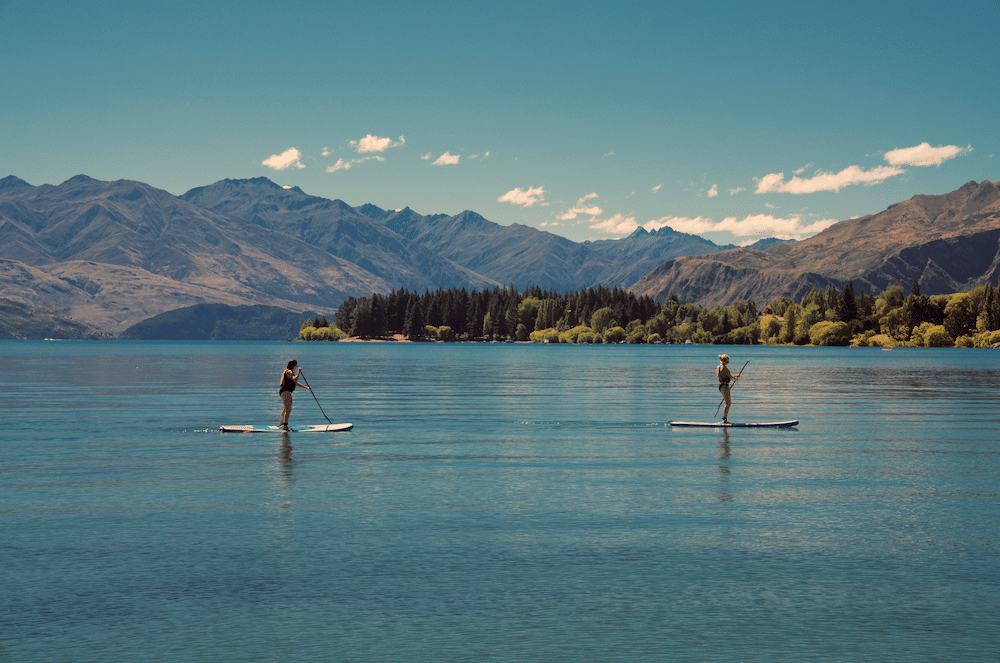Across the travel industry as a whole, we’re hearing terms like “sustainable tourism” a lot more frequently than ever before. Travelers and tourism service providers alike now have an increased social consciousness which is helping to drive this upward trend for the greater good. Even Airbnb has launched its Global Office for Healthy Tourism initiative, which aims to drive more “diverse, inclusive and sustainable travel”.
What is sustainable tourism?
The UN World Tourism Organization defines sustainable tourism as “tourism that takes full account of its current and future economic, social and environmental impacts, addressing the needs of visitors, the industry, the environment and host communities”.
According to Booking.com’s most recent Sustainable Travel Report, 87% of global travelers state that they want to travel sustainably, and four in 10 confirm that they often or always manage to do so.
There are three key pillars which contribute to sustainability: economic, environmental and social. Kelley Louise, executive director of the Impact Travel Alliance says that sustainable travel has a “positive impact” on these three facets of any destination that tourists are visiting.
As a vacation rental owner, you have a role to play in ensuring that visitors to your property bring no harm on the area and, in addition, make a contribution to the local community and its economy.
“As someone who’s just started down the path of social responsibility, I can already tell this has changed me and the way I run my business. My hope is that a few years down the line, vacation rentals involved in social initiatives will be considered a must-have amenity much like WiFi is today.”
– Kati Ruotolo, BudaHome
How can you support sustainable tourism with your vacation rental?
Hotels began to adopt sustainable initiatives around a decade ago, and it’s been a growing focus ever since. Vacation rentals can look to hotels for inspiration and learn from them to promote sustainability.
The Booking.com report concluded that 47% of global travelers find seeing the positive effect that sustainable tourism can have on the local people to be inspiring when choosing a destination. Here are some suggestions of what your rental can do to move towards sustainability.
Economic
1. Give back to the local community
Investing profits back into your local community can help preserve and protect the area that your guests are visiting. This could be anything from shopping locally, to using local plumbing services or even donating money to a local cause.
2. Hire local staff
Besides investing money into the community, your vacation rental can also be a source of income for local people. At some point or another, you’re likely to need cleaning services, a gardener or even a pool maintenance person. So, before going to the big chains, search to see if there are any local, independent contractors who can do the work for you.
3. Source local supplies
Sourcing items for your vacation rental property is another way to support the economic pillar of sustainability. Whether it’s handcrafted furniture and antique finds for your rooms, or fresh fruit and delicacies for your guest welcome basket – try to source these supplies locally to further reinforce your support of the community. In addition, leave information about where these items come from – so your guests can check them out whilst visiting your area.
Environmental
1. Energy conservation
Energy is one of the biggest talking points for sustainable travel – with energy accounting for 60% of a property’s carbon footprint. Luckily, there are some easy, actionable tips you can put into practice to transform your vacation rental into an eco-friendly home. Installing energy-efficient lighting and appliances, adding solar panels to your property and recycling water are all excellent ways to cut down on energy use.
2. Water conservation
While it’s unlikely your rental uses as much water as a hotel, it’s not something that should be overlooked. Worldwide, over 780 million people still do not have access to an improved water source.
No matter where your property is located, you can perform simple tasks which will help reduce water consumption. On the property level, you can conduct a water audit to investigate where you’re consuming the most water and repair any leaks or drips. In terms of promoting sustainable tourism to your guests, you can ask them politely to reuse their towels, to only run the dishwasher or washing machine when full and to ensure they switch all faucets off after use.
3. Waste and recycling
Providing recycling facilities inside your vacation rental is the first step in the right direction to reducing overall waste. Place clearly marked containers for organic, plastic, paper and glass in your property, and educate your guests on how to use them effectively when they arrive.
4. Transport
What transport options are available for your guests? If it’s suitable for your area, can you provide bicycles to discourage using motor vehicles as frequently? Or can you provide information on public transport to get around? This will help reduce their – and consequently your property’s – carbon footprint in your local area.
Social
1. Encourage guests to purchase locally
Instead of seeing guests head for the mass-produced souvenir shops, show them what is unique to your area and encourage them to purchase mementos from local people. This will help inject capital into your community and its local entrepreneurs! Warn guests to steer clear of animal products (skins, shells, horns etc.) which are likely to have been sourced unsustainably (or in the worst case – illegally).
2. Inform guests about local projects you’re a part of
If you’re actively participating in or donating to a local project of any kind to promote sustainable tourism, make it known to your guests as they may be willing to take part, too. In the Booking.com report, many global travelers indicated they engage in sustainable travel behavior because the activity itself adds a positive vacation experience to their trip.
“I would encourage everyone to share their project/way of giving back with their guests. Not to be boastful or say ‘look at me’, but because often guests are interested in what you are doing and are most likely to appreciate the efforts you are making and might even want to contribute or assist in some way.
Mentioning it occasionally on social media, on your website or in a conversation with a guest, done with humility and tact it is another way to engage with your guest and bring them closer to you and your hosting style.”
– Bob Garner, Casal dei Fichi
If guests know they are doing good for the local community they are living in for a short time, not only can it help enhance their overall stay, it can also influence them to share stories of their sustainable travel experience when they get back home.


